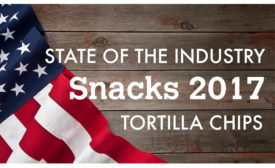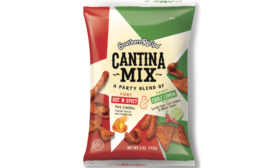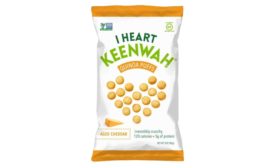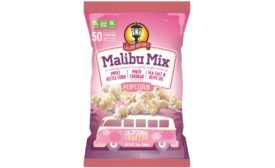Snack Products
Snack producers roll out bolder flavors and cleaner labels aimed at diverse sets of consumers.
Read More
State of the Industry 2017: Puffed and extruded snacks finds diversity in flavors and base ingredients
The strong puffed and extruded snacks segment diversifies through flavors and base ingredients.
July 18, 2017
State of the Industry 2017: Pretzels get a flavor makeover
Pretzels seek growth through diversification, often marrying better-for-you, clean-label attributes with indulgent flavors.
July 18, 2017
State of the Industry 2017: Popcorn offers more choices for consumers
The popcorn category continues to dazzle with flavor innovation and better-for-you options.
July 18, 2017
State of the Industry 2017: Frozen snacks and appetizers capitalize on innovations
The frozen snacks and appetizers market finds growth opportunities through targeted, on-trend innovations.
July 18, 2017
State of the Industry 2017: Inventive crackers push the envelope
A strong category can grow stronger with innovative flavors and alternative bases.
July 18, 2017
Keep the info flowing with our eNewsletters!
Get the latest industry updates tailored your way.
JOIN TODAY!Copyright ©2024. All Rights Reserved BNP Media.
Design, CMS, Hosting & Web Development :: ePublishing











